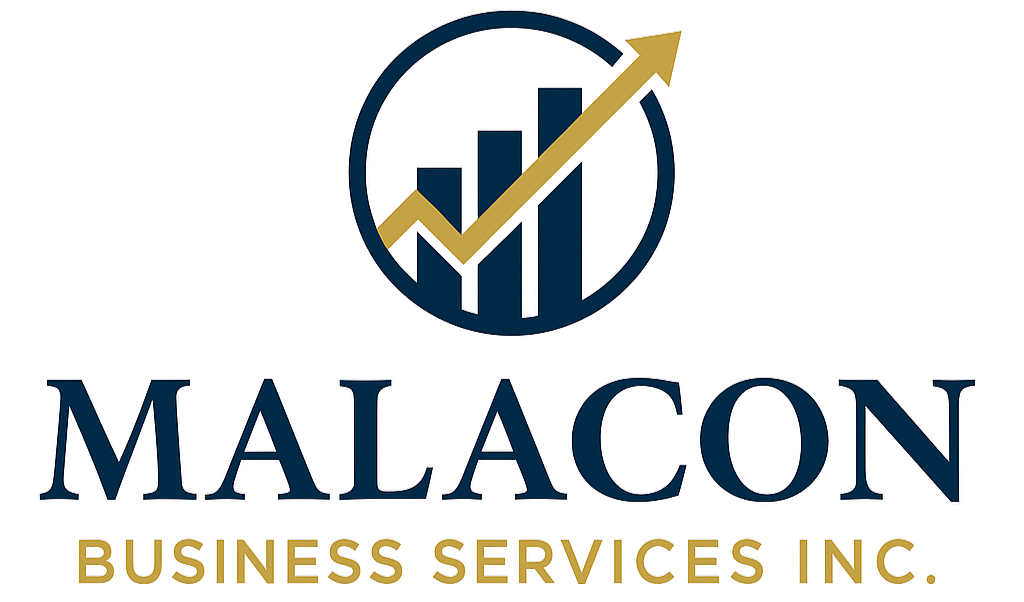In a time of economic unpredictability, access to business funding has become one of the most urgent needs for small and medium-sized enterprises (SMEs). Whether launching, scaling, or surviving a crisis, having the right capital can make the difference between growth and shutdown.
But where do you start?
With thousands of entrepreneurs searching “business funding options for small businesses” every month, this guide outlines the 7 most effective funding sources in 2025 — including how to apply, how to qualify faster, and when to seek expert help.
Need help preparing a bank-ready loan application?
Malacon Business Services offers projections, documentation, and advisory
Table of Contents
-
Why SMEs Need Smarter Funding in 2025
-
How to Prepare Before Seeking Financing
-
The Top 7 Funding Options for Small Businesses
-
-
Bank Loans
-
Government Grants and Subsidies
-
Business Line of Credit
-
Equipment Financing
-
Invoice Financing
-
Angel Investors / Venture Capital
-
Crowdfunding
-
-
-
How to Qualify Faster and Get Approved
-
How Malacon Business Services Helps You Secure Funding
-
Internal & External Resources
-
Final Thoughts & Next Steps
1. Why SMEs Need Smarter Funding in 2025
Between supply chain delays, inflation, and increased competition, small businesses can no longer rely on traditional cash flow alone. Access to funding helps with:
-
Working capital
-
Inventory purchases
-
Marketing and expansion
-
Hiring and payroll
-
Emergency survival
According to the World Bank, over 60% of SMEs cite lack of funding as a key growth barrier.
2. How to Prepare Before Seeking Financing
Getting approved is about more than applying — it’s about being ready. Here’s what every lender, grant agency, or investor wants to see:
What You Need:
-
Up-to-date financial statements
-
12-month cash flow forecast
-
Clear business plan or funding proposal
-
Clean credit report (business or personal)
-
Industry benchmarking and revenue projections
Internal link: Get help preparing your business financials and forecasts with Malacon Business Services
3. The Top 7 Business Funding Options for Small Businesses
1. Traditional Bank Loans
Best for: Established businesses with solid credit and revenue
Banks offer term loans ranging from $10,000 to $500,000+ for purposes like equipment, renovations, working capital, or expansion.
Pros:
-
Lower interest rates
-
Long repayment terms
-
Trusted institutions
Cons:
-
Strict documentation
-
Slower approval times
-
Requires good credit and collateral
External link: SBA Small Business Loan Guide
2. Government Grants and Subsidies
Best for: Startups, women-owned businesses, green businesses, and exporters
These are non-repayable funds offered by governments and NGOs.
Examples:
-
FundAccess (Barbados)
-
Caribbean Development Bank initiatives
-
Export Development Canada
-
Women’s Entrepreneurship Fund (Canada)
Pros:
-
No repayment required
-
Often paired with training or technical assistance
Cons:
-
Highly competitive
-
Complex application process
Ask Malacon Business Services to help you prepare a grant-ready business proposal
3. Business Line of Credit
Best for: Businesses needing flexible cash on demand
A line of credit allows you to borrow up to a certain limit and only pay interest on what you use.
Pros:
-
Revolving access to cash
-
Lower interest rates than credit cards
-
Ideal for seasonal businesses
Cons:
-
May require collateral
-
Can be revoked if misused
4. Equipment Financing
Best for: Businesses needing machines, vehicles, or hardware
Lenders finance 80–100% of new or used equipment costs, secured by the equipment itself.
Pros:
-
Doesn’t affect cash flow
-
Equipment acts as collateral
Cons:
-
Asset depreciation
-
Strict use limits
5. Invoice Financing (Factoring)
Best for: Businesses with slow-paying clients
You can get 70–90% of your unpaid invoices in advance from lenders.
Pros:
-
Solves cash flow issues quickly
-
No collateral needed
Cons:
-
Fees can be higher than standard loans
-
Not suitable for all industries
6. Angel Investors / Venture Capital
Best for: Scalable startups or high-growth SMEs
Private investors offer capital in exchange for equity or convertible debt.
Pros:
-
Large funding potential
-
Mentorship and connections
Cons:
-
You give up equity
-
Slower due diligence and negotiations
7. Crowdfunding
Best for: Innovative or community-oriented businesses
You raise small amounts of capital from many people via platforms like:
-
Kickstarter
-
GoFundMe
-
Fundable
-
SeedInvest
Pros:
-
Builds community buzz
-
Non-dilutive in many cases
Cons:
-
Requires a strong marketing push
-
Not guaranteed
4. How to Qualify Faster and Get Approved
Key Tips:
✅ Clean up your credit – Pay down balances, fix errors
✅ Prepare your financial statements – Up-to-date and accurate
✅ Create a cash flow projection – Show sustainability
✅ Tailor your application – Align proposal with funder’s goals
✅ Seek professional help – Especially with business plans and projections
Malacon Business Services offers loan projection and application services
5. How Malacon Business Services Helps You Secure Funding
Whether you’re applying for a BDS$20,000 grant or a US$500,000 expansion loan, Malacon Business Services helps you position your business for approval.
We Offer:
-
Business plan development
-
Bank-ready loan projections
-
Financial statement preparation
-
Cash flow forecasts
-
Credit improvement strategies
-
Application review and documentation support
Book a free discovery call → Contact Malacon Business Services
7. Final Thoughts & Next Steps
Business funding is no longer optional — it’s a strategic necessity. Whether you’re a local artisan, a consultancy firm, or an online retailer, the right funding option can unlock your next level of growth. Don’t leave money on the table.
Let Malacon Business Services help you:
- Prepare and position your business
- Submit bank-ready documentation
- Unlock local, regional, or global funding opportunities
Start the process today → Book your free consultation

